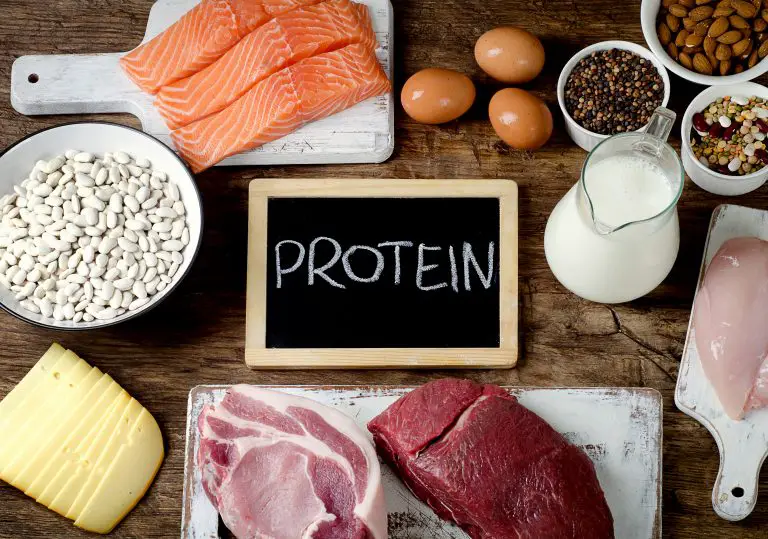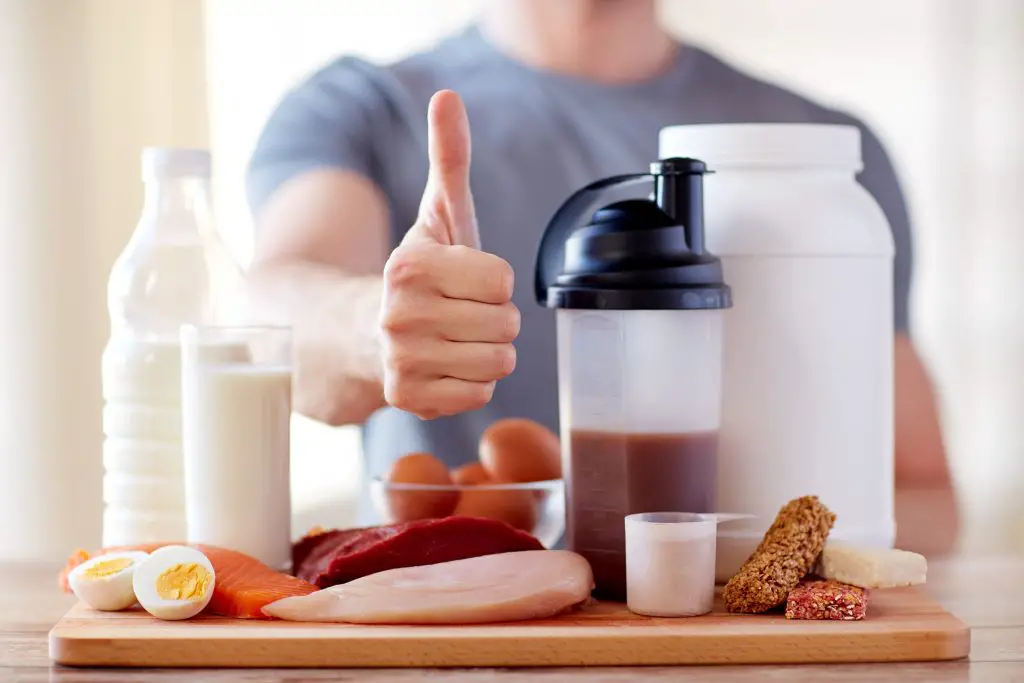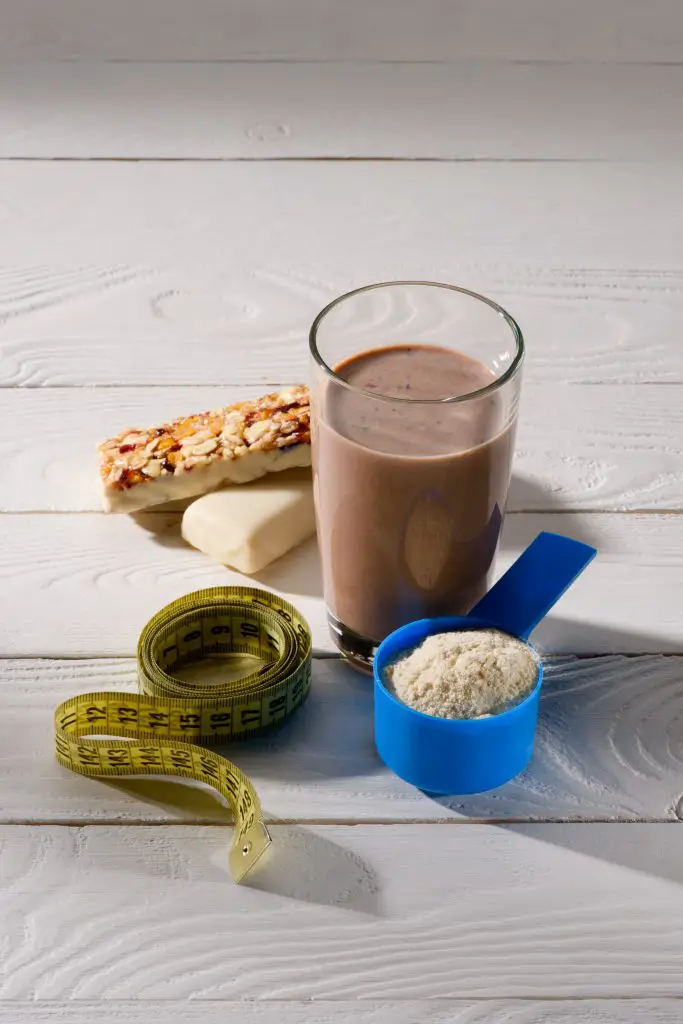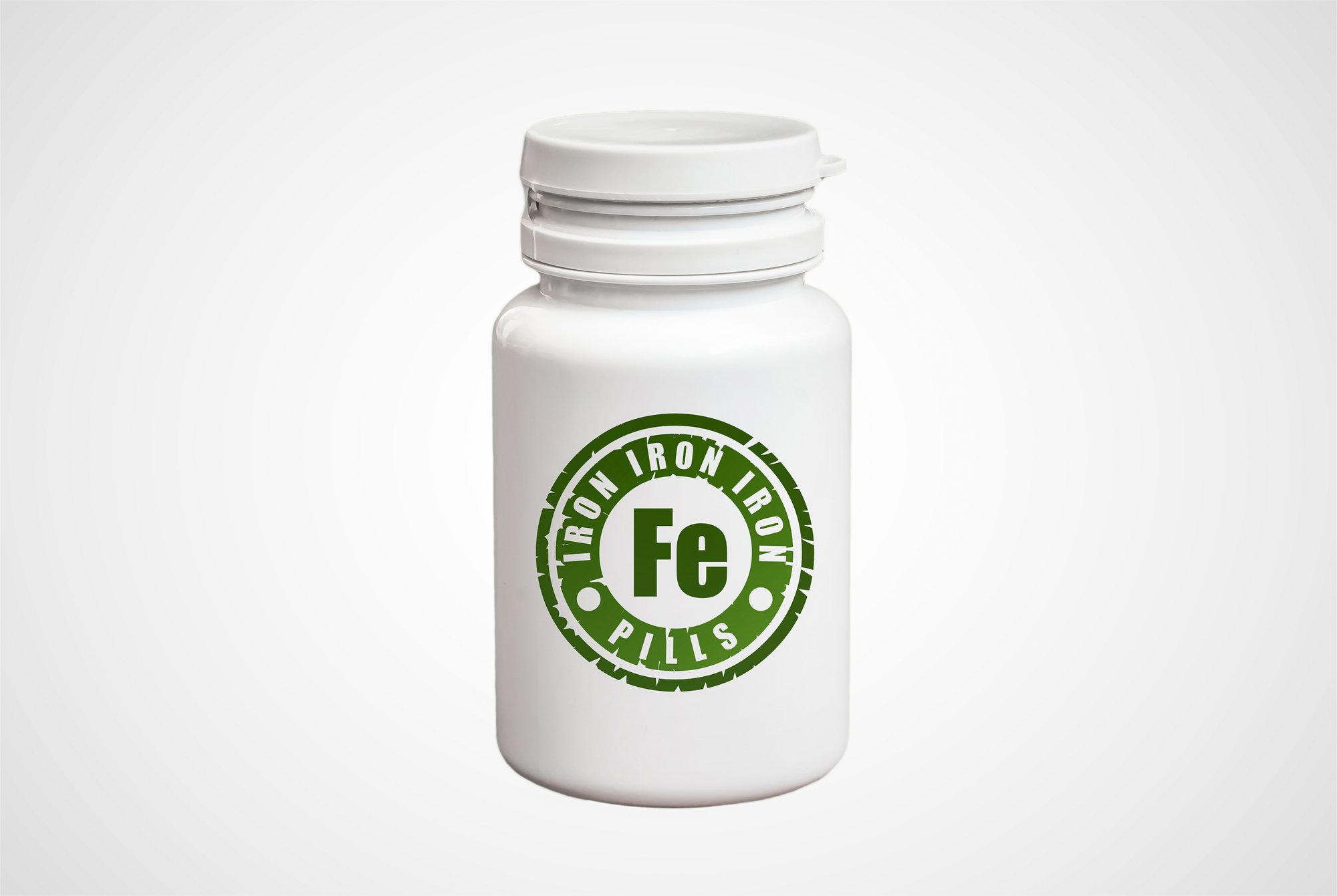
Page Contents
Protein is not really something that you usually think you might need more of when you have hair loss. However, protein is actually something that is vital for you and for your hair. There is a lot about protein that you may not know about.
The fact is that protein is necessary for your hair, but it can be taken too far, just like any good thing. Therefore, in certain cases, protein can help your hair. In other cases, protein can hurt your hair if you are getting too much or too little of it.
What Protein Does For You
Protein is one of the essential nutrients for your body. The very name comes from the Greek word ‘protos’ that means ‘first’ in some contexts. This is, in part, to emphasize just how important protein is in your body.
Your body uses protein to build new cells, both as you grow and to replace any cells that get old and die. More than that, protein helps your body maintain its various cells. Protein is present the most in the membranes that surround each individual cell in your body.
Protein is also utilized by your body to synthesize other things that it needs. You can picture protein like a long chain of sausage links. These links can be taken apart by your body to make all sorts of things. For example, such things as your bones, muscles, hair, nails, and skin all have some protein in them.
The inner structure of your bones, especially your bone marrow, has a lot of protein in it. Your muscles have things like myosin, actin, and myoglobin in them, which are all synthesized by your body from protein.
Your nails are also synthesized by your body out of protein into something called a scleroprotein. As a fun fact, this type of cell is designed by your body to be resistant to your digestive enzymes. The outer layers of your skin also have a form of protein in them.
Your red blood cells themselves have hemoglobin in them, which is a protein compound too. Your neurotransmitters are necessary for your nerve cells to send messages to each other and require protein too. In addition to all of those things, protein also contains a number of amino acids and enzymes that you need. These enzymes go into digesting your food, including more breaking down more protein.

How Protein Helps Your Hair
As you can see, protein goes into many different parts of your body. Your hair is one of the countless things that require protein. For hair, your body breaks apart the structure of the protein and forms keratin. Keratin is a vital building block of your hair.
Keratin is actually almost identical to the cells that make up your nails. In its true form, keratin is resistant to your digestive enzymes. This means that, though many hair loss products may contain keratin, intaking it internally will not help you absorb much of it since you won’t be able to digest it.
Not getting the protein you need to make keratin can cause your body to conserve it. When this occurs, your body will save the protein for its necessary functions. Since your body does not consider hair to be a necessary function, your hair will shift into its resting phase. This causes your hair to fall out.
Biotin is another vital nutrient for your hair. Though you can get Biotin from other sources, protein is one of the main ways that you can get this vitamin.
While that is direct help for your hair, protein also helps your hair indirectly in multiple ways. For example, red blood cells are what move oxygen and important nutrients to your hair and require protein for your body to make them.
Taking care of your bones and helping give you more muscles can also help. No matter if you work out indoors or go for a run outside, getting that heart pumping will give your circulation and your hair a boost. If you are getting on in years, protein will help you maintain your bone mass. This, in turn, can help you avoid getting bone fractures and keep your blood count up.
How To Get Protein

Protein is found in a variety of different products. While meat is the one you may think of first, nuts are also a great way to get it. Eggs and dairy products also have a notable amount of protein in them.
Though vegetables don’t have as much protein, there are a few that can meet your protein needs if you are a vegetarian. Legumes, quinoa, and beans are excellent options for protein if you are trying to avoid meat.
Other things like help are also good ways to get protein. Remember, you don’t need a very large portion to get a serving of protein. It only takes about 3 ounces, which is a section of meat about the size of a deck of cards.
You can get protein in a few other ways as well, with protein supplements being available in a variety of different forms. This variety helps make it effortless to incorporate them into your everyday routine without making too many changes.
There are protein shake mixes that you simply add one or two ingredients to. Or, if you already have a shake that you like, plain protein powders that you can add to that. Then, there are protein bars that you can take on the go with you.
When using protein for your hair, you can get a protein treatment in the form of a hair mask. Some ingredients to look for that you want in these protein treatments are: keratin, collagen, creatine, yogurt, and Vitamin B-5.
In these treatments, there are things you should avoid. These are ingredients like cocamide DEA, isopropyl alcohol, parabens, polyethylene glycol, silicones, and sulfates. These ingredients are damaging to your hair while you are trying to make your hair better.
The Right Amount Of Protein
Protein is one of the harder things to determine the right amount of. This is why most packages that list the nutritional content rarely even try to state the daily percent of protein in things even when they list this percentage for the vitamins that might be in it.
In general, around 0.45 to 0.55 grams of protein per pound is a good amount for most adults. However, if you want to calculate this differently, you should look at your total calory intake. Protein should make up about 25% of the total amount of calories that you consume per day.
Therefore, if you like to eat a lot of calories, you should also be consuming more protein to go with it. Or, if you are on a diet and are not eating many calories, you might also be able to get by with less protein.
Though that is a good rule of thumb that you can follow, there are always going to be exceptions. For example, if you are trying to lose weight, protein should make up more of the calories you eat.
Also, if you are trying to build up your muscles, these will definitely both burn up the protein by the exercise it takes to get them and use up protein by forming the new muscle tissue. That is why muscle-builders are so big on getting lots of protein in their diets.
Too Much Protein
While hard to do, it is entirely possible to get too much protein in your diet. For starters, the excess protein will be stored as fat, making weight gain an obvious symptom of too much protein. In small amounts, weight gain may be no big deal but, in some cases, it is very damaging to one’s health.
Too much protein can literally put stress on your kidneys. Just as it is difficult for your body to break down protein to digest it, so it is difficult for your kidneys to flush out the excess protein you eat. This is on top of upsetting your stomach by making it work so hard.
Constipation or diarrhea, or spouts of both, are quite likely as your stomach alternates between trying to process all the protein you are eating and giving up and flushing it all through because it can’t deal with it.
Either of these stomach problems, especially when combined with the kidney strain, can easily result in dehydration. A few other random symptoms of too much protein that you may have are irritability, headaches, and a lack of energy.
Most of the foods that have protein in them also have cholesterol. Therefore, high cholesterol is a common problem for those who eat too much protein. Between this and the weight gain, you may have heart problems as well.
Too Little Protein

You are much more likely to end with too little protein than too much, especially if you are dieting. If you wonder if you are getting enough protein, there are a handful of signs that you can look out for. The first is going to be that you don’t really feel full or feel hungry most of the day. This feeling of hunger can make you feel weak and can sap your energy levels as well.
A lack of protein will also affect your muscles. Since muscles require protein, your body won’t be able to keep the muscles you have, much less grow new ones. What muscles you have may start to ‘melt’ away over time for no apparent reason. Along with this, controlling your weight, whether to lose it or gain it, will be harder to do without protein.
Getting sick frequently can be caused by countless things, but a lack of protein can be a contributing factor. The T-cells used by your immune system need protein, so a lack of this will limit the number of T-cells your body can make to fight off a cold.
Edema, identified by a specific swelling primarily in your ankles, is caused by a buildup of fluids. Protein in your blood helps hold onto the salt and water. This keeps your fluids where they belong so that they don’t seep out into places they shouldn’t. Not getting enough protein can, therefore, contribute to edema.
Finally, as mentioned, protein goes into making your skin. Without the protein it needs, your skin won’t be able to form as much of a protective barrier for itself. The result will be skin that gets flaky or irritated easily, even to things that it might have been able to handle before.
Other Notes On Protein
Having a healthy body can often play a large role all on its own in giving you healthy hair. Being an unhealthy weight, on either end of the spectrum, can cause all sorts of problems. Any number of these problems may directly or indirectly cause you to lose your hair.
Protein is something that can be used to help you stay the right weight that you should be. First, protein does this by helping to curb your hunger levels. When you get the sensation where you feel like you are hungry, this is caused by a hormone called ghrelin.
Conversely, the feeling of being full is caused by a hormone that is released while you eat called peptide YY. Protein is one of the main foods that cause this latter hormone to be released while decreasing the ghrelin levels.
When it is being digested, protein helps even more. You see, certain foods take longer to digest in your stomach. These foods literally cause your body to burn off calories to break them down and digest them. Protein is one of these foods, allowing you to burn off a few calories before you even hit the gym.
More than that, when you get a craving for certain foods, this is often because something about that food triggers your dopamine. However, protein can help level out your dopamine levels some, and it helps reduce your cravings.
Final Thoughts
If you are looking at protein as a way of getting your hair to grow better, odds that you want to look your best. Protein can help with more than just your hair looking good, it can help your whole body look good too.
Some diets make it hard to get the protein you need for your hair, so you can try intaking collagen. Though slightly different from protein, collagen has enough similarities that your body can break it down and use it in some of the same ways. This includes helping make the keratin your hair needs.
If your hair is still struggling, you should try talking with a dietitian. They will be able to help you stay on your diet and get what you need. Before you load up on a ton of protein for your hair, you may want to rule out a vitamin or mineral deficiency by taking a blood test.
This is because, while protein can be wonderful for your hair, you can take it too far. Putting protein masks or treatments on your hair every day, for example, would definitely be too much. It will make your hair weigh more, causing some added breakage to your hair.






